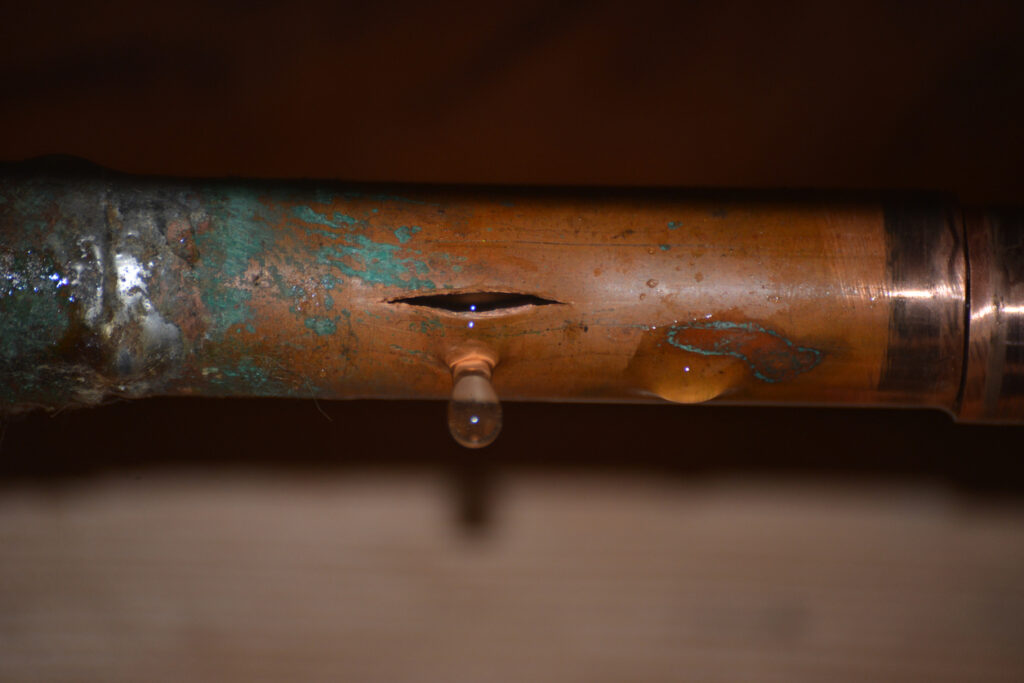
Can Pipes Freeze in Virginia?
Although winters in Virginia can be mild compared to our neighbors further north, it does get cold enough to freeze water pipes.
Understanding the risks is important to protect your plumbing pipes and your home from damage. You should also know what to do if your pipes freeze or burst.
Albemarle Heating & Air has all the answers you need, and we’re available for pipe repair and replacement if necessary.

Average Winter Temperatures in Virginia
Freezing temperatures can occur virtually every night during winter in Charlottesville. Average temperatures stay relatively consistent throughout the coldest months of the year:
- December: 32 degrees to 48 degrees
- January: 28 degrees to 46 degrees
- February: 29 degrees to 49 degrees
How To Prevent Frozen Pipes
Although frozen pipes can cause costly and catastrophic damage to your home, they are relatively easy to prevent.
Pay attention to the forecast and take action if it’ll be below-freezing temperatures:
- Disconnect garden hoses and drain the hose bibbs.
- Insulate or add heat tape to any pipes exposed to the cold.
- Close the garage door when it’s cold to protect pipes in exterior walls.
- Open cabinet doors below sinks to circulate heat around the pipes.
- Leave your faucets dripping to keep water moving in the pipes.
If you’re leaving your home for an extended period, it’s especially important to keep the thermostat on and set above 55 degrees. We also recommend turning off the water shut-off valve, if possible.
What Happens if Pipes Freeze?
Even if you take extensive precautions, it’s still possible for pipes to freeze in extreme weather.
One of the first things you’ll notice when your pipes freeze is that there’s no water from any taps. It may start as reduced water pressure before the water flow stops completely.
Once the pipes have frozen solid, they may expand, or in the worst-case scenario, they may crack or burst, leading to leaks, especially as the pipes begin to thaw.
Any plumbing leak can cause extensive harm to your home, from damaged drywall and insulation to swollen wood flooring and long-term problems with mold and wood rot.
How To Thaw Frozen Pipes
Act quickly to minimize the water damage if your pipes freeze.
It’s best to call a professional plumber to address frozen pipes and ensure you don’t have any hidden pipe leaks.
You can also thaw the pipes yourself by taking these steps:
Turn Off the Water Shut-Off Valve
Turning off your water supply will minimize the water damage if the pipes leak after thawing.
The shut-off valve will usually be found near the water meter or where your water main connects to your home. Turn the valve clockwise to shut off the water flow.
Open Your Faucets
Turn on all your faucets to relieve the pressure in the lines. This will make it easier to get the water moving and purge the lines of ice and air as the pipes begin to thaw.
Thaw the Pipes
Gently thaw the pipes by applying heat from a hair dryer, portable heater, or towels that have been warmed using hot water.
Watch for leaks as the pipes thaw, and keep a bucket nearby to catch any drips until your plumber can repair the cracked pipes.
What To Do if a Pipe Bursts
A burst pipe can leak large amounts of water in a short time, so you should:
- Shut off the main water line as soon as you discover the leak to minimize damage.
- Turn off power to the affected area by flipping the circuit breaker at your electrical panel to prevent the risk of electrical shock and fires.
- Relocate any personal belongings or important items that may be damaged by the leak.
- Call a professional plumber for pipe repairs.
Call Albemarle Heating & Air for Expert Plumbing Repairs in Charlottesville, VA
We’ve serviced homeowners since 1988, providing premier home services our customers trust. Read our great reviews so you can confidently choose our team.
Our licensed, professional plumbers are ready to help with all your plumbing service needs. We do it all, from thawing frozen pipes to repairing leaks or replacing burst pipes.
Call 434-293-4556 today to request pipe repair or replacement in the Charlottesville area.
CHARLOTTESVILLE AND SURROUNDING AREAS Albemarle County | Fluvanna County | Louisa County | Nelson County | Augusta County | Madison County | Greene County | Orange County











